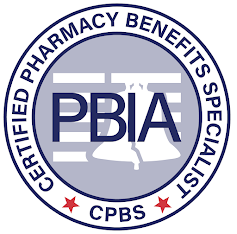News and notes from around the interweb:
- Survey on Outcomes-Based Contracts Shows Mixed Results for Novel Therapies. Avalere Health’s fifth annual survey of outcomes-based contracts (OBC) for novel therapies showed varied results in overall participation and across specific therapies. OBCs center on “high-cost novel treatments and other types of products” and “typically include an agreement between health plans and drug or device manufacturers that ties product reimbursement to specific clinical, quality, or utilization outcomes.” John Neal, an Avalere managing director notes: “These products come with big price tags. Payers want to make sure the outcomes are what was indicated in clinical trials.”
- Understanding the Evolving Business Models and Revenue of Pharmacy Benefit Managers. Over time, PBMs have found ways to take advantage of a lack of transparency and oversight to increase their profit, said Sally Greenberg, executive director of the National Consumers League. This report showcases not only the many ways they do this but also just how much money they’re making from these tactics. We must find policy solutions to bring that money — those savings — back to consumers as intended.
-

Join the Movement! Documents reveal the secrecy of America’s drug pricing matrix. Several people who work in the industry, who asked not to be named due to the confidential nature of coalitions, said most employers, regardless of how big they are, have no idea what they’re giving up when they enter coalitions. Once employers are locked into the coalition, they can’t get a full second opinion on the drug prices they pay, experts said.
- The Consolidated Appropriations Act Introduces Broker Compensation Transparency. Effective December 27, 2021, brokers and consultants of ERISA covered group health plans, regardless of size, will be required to execute a written contract with a responsible plan fiduciary which includes a description of the services to be provided, a description of all direct compensation the broker expects to receive, and a description of all expected indirect compensation including vendor incentive payments.
- 340B Program, PAPs Help Ensure SP Rx Success. But those 340B savings don’t magically appear, Dr. Mitchell stressed. His specialty pharmacy has clinical pharmacists embedded in clinics who make sure that orders for specialty medications sent to the internal specialty pharmacy are eligible for 340B savings. They also are responsible for ensuring that orders patients choose to have filled at external pharmacies—or that payors mandate be sent to a specialty pharmacy—still remain in the health system’s contract pharmacy network.
The Certified Pharmacy Benefits Specialist (CPBS) educational offering includes knowledge that is critical to effective management of the pharmacy and medical drug benefit. If you want to learn more, click here.
